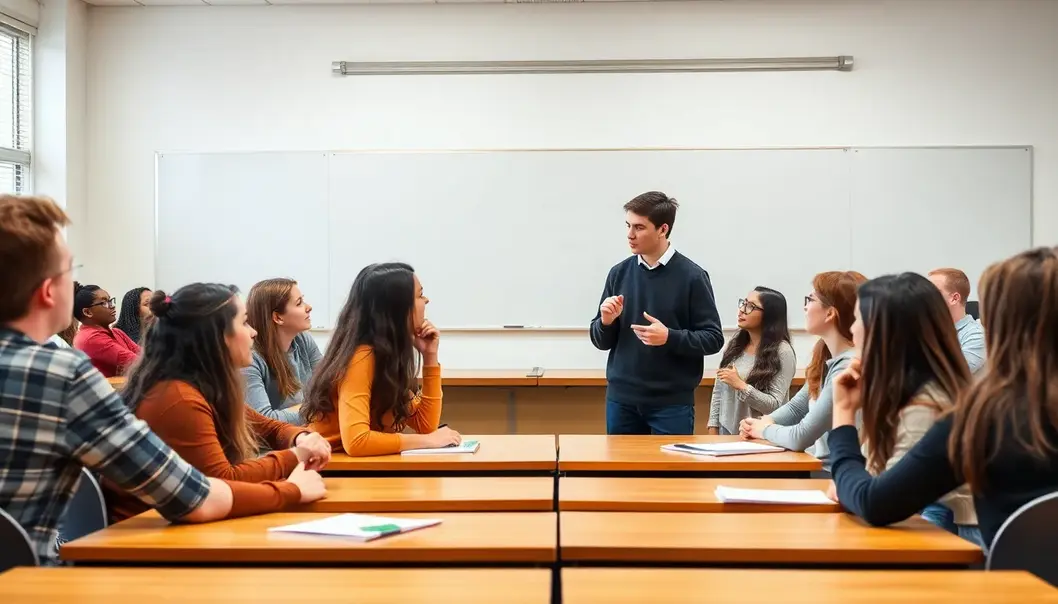Critical thinking is an essential skill that enables high school students to analyze and approach problems creatively and rationally. As parents, you play a pivotal role in nurturing these skills in your children to prepare them for future academic and life challenges. This article delves into practical ways you can encourage the development of critical thinking in your teenagers. Whether tackling complicated math problems or understanding world events, critical thinking helps teens synthesize information, make informed decisions, and enhance their understanding of the world around them. Read on to explore practical strategies and gain reassurance that you’re on the right path in supporting your child’s intellectual growth.
Nurturing a Questioning Mindset

Cultivating a questioning mindset in teenagers is a cornerstone for developing their critical thinking abilities. Encouraging teens to ask questions across diverse subjects and situations lays the groundwork for a deeper comprehension of concepts. This inquisitive nature should not be limited to academics; it should permeate various aspects of their day-to-day lives.
When teenagers are taught to understand the ‘why’ behind facts and figures, they begin to see the world in a more connected and meaningful way. For example, understanding why historical events occurred, rather than memorizing dates, lends a richer context and aids in drawing parallels with present-day scenarios. Similarly, exploring the scientific principles that explain everyday phenomena encourages logical reasoning and hypothesis testing.
Critical thinking manifests in everyday situations, such as evaluating the credibility of online information. By questioning the source and intent of a news article, teens practice discerning fact from opinion. This practice extends to determining the reliability of media content, thus honing their media literacy skills. Recognizing biases in articles encourages them to seek multiple perspectives and engage in informed discussions rather than accepting information at face value.
This mindset supports effective problem-solving and decision-making skills. When encountering a challenge—be it a personal dilemma or a school project—teens who question conventional solutions are more likely to develop innovative approaches. By asking, “Is there another way to address this issue?” they open themselves up to creative solutions previously unexplored.
At home, parents play a pivotal role in fostering open dialogue and nurturing curiosity. Creating an environment where questions are welcomed and discussed promotes a safe space for intellectual exploration. Rather than providing straightforward answers, guiding teens to discover solutions through probing questions can be more beneficial. Questions such as “What do you think about this?” or “Why do you feel this way?” initiate deeper thinking and reflection.
Additionally, parents can encourage curiosity by exposing their teens to different experiences, such as visiting museums, attending lectures, or exploring nature. Each of these activities presents opportunities for questions that can drive understanding and insight. Open discussions following these experiences can solidify learning and promote further inquiry.
Fostering a questioning mindset in teenagers equips them with tools essential for navigating future challenges. This foundation not only enhances their academic pursuits but also prepares them for active and thoughtful participation in an increasingly complex world.
Applying Critical Thinking in Real-World Scenarios

Empowering teens to apply critical thinking in the real world is crucial for their development. By engaging in practical exercises like debates, group discussions, and scenario analyses, they learn to apply critical reasoning beyond academia. These activities encourage them to think on their feet, articulate ideas clearly, and listen to differing viewpoints.
Debates are excellent for enhancing critical thinking. They require students to explore both sides of an argument, build evidence-based cases, and counter opposing views effectively. This not only sharpens their analytical skills but also teaches them empathy and open-mindedness. Group discussions further emphasize the value of collaborative problem-solving. Teens learn to dissect complex issues collectively, learning that diverse perspectives can lead to more nuanced solutions.
Scenario analysis bridges the gap between abstract concepts and real-life applications. Whether examining a historical event or a current issue, scenario analysis compels students to evaluate decisions, understand consequences, and consider alternative outcomes. These exercises train them to foresee challenges and devise pragmatic solutions.
Parents play a pivotal role in facilitating these experiences. They can provide resources and opportunities that encourage critical analysis outside the classroom. Encouraging teens to analyze current events is an effective starting point. With the vast availability of news, parents can guide their teens to discern reliable sources from misinformation, promoting media literacy.
Everyday decisions also serve as platforms for honing these skills. Families can engage in discussions about budget management, planning vacations, or even debating ethical dilemmas encountered in daily life. This not only involves teens in decision-making but also instills a sense of responsibility.
To support these learning experiences, parents can actively promote critical thinking at home. Start by creating a culture where questioning is valued, not discouraged. Prompt your teen to reflect on their decisions and outcomes. Provide them with diverse materials, such as books, articles, or documentaries, that stimulate thought and discussion.
Actionable steps include organizing or participating in local debate clubs, encouraging journal writing to reflect on current events, and regularly scheduling family discussions on news stories. These practices immerse teens in environments that challenge their thinking, preparing them for future challenges.
By integrating critical thinking into everyday life, we equip young minds with the tools they need to navigate the complexities of modern society effectively.
Final words
Developing critical thinking skills in high school is an invaluable asset that will benefit your child throughout life, equipping them with the ability to navigate challenges effectively. By fostering an environment of curiosity and providing real-world practice, you lay the foundation for their success. Remember, your support and encouragement in nurturing these skills can make a substantial difference in their academic journey and beyond.
Ready to empower your teen’s critical thinking skills? Explore resources and tools at our website to guide you.
Learn more: https://www.example.com/resources
About us
Our company offers comprehensive educational resources and expert guidance for parents looking to enhance their child’s critical thinking abilities. From workshops to online courses, we provide the tools and support necessary for nurturing intellectual growth and curiosity in teenagers.



